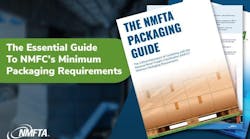The American Trucking Assns. (ATA) has stated that one of the researchers who worked directly on the primary scientific studies that the Federal Motor Carrier Safety Administration (FMCSA) used to support the changes the agency is proposing for current hours-of-service (HOS) rules for truck drivers “misapplied” those findings.
The researcher in question is Dr. Francesco Cappuccio, a physician and professor at Warwick Medical School in the United Kingdom, who reviewed 16 published studies regarding the effect of sleep duration on mortality. He also co-authored a 2007 study that ATA said FMCSA “leaned on most heavily” to support its HOS reform effort – using that study’s data to conclude that short projected increases in sleep could generate roughly $690 million in annual health benefits for drivers.
Cappuccio said in a written report that FMCSA “misused his sleep research,” concluding that the agency “cannot use it to quantify benefits to justify its regulatory changes.”
“[T]he current evidence . . . do[es] not support the conclusions of the FMCSA that a small increase in sleep duration of a few minutes following the HOS options proposed, particularly in the groups with baseline daily sleep of more than six hours per night, is likely to decrease the mortality risk of individuals or groups,” he noted.
“There is no evidence to prove, that without additional measures, a simple reduction in work hours will result in increased sleep time,” he added, cautioning that sleep duration/mortality studies do “not demonstrate or even imply a cause-effect relationship” and warned it was “premature to address specific policy changes on the basis of the published relationships between sleep time and mortality risk.”
“American Trucking Associations has said since the outset that policy changes of this scope need to be based on sound science and research, not political pressure and unproven theories,” added Gov. Bill Graves, ATA president & CEO. “The fact that this prominent physician and sleep researcher clearly states the agency is wrong to use his and others work in this way clearly exposes the serious flaws in this proposal.”
Asked by FleetOwner for a response to this accusation, FMCSA released the following written statement: “The hours-of-service notice of proposed rulemaking specifically asks for the public to provide robust feedback, comments and questions about the various components of the proposal. The agency looks forward to receiving all public comments and addressing them in the final rule.”


